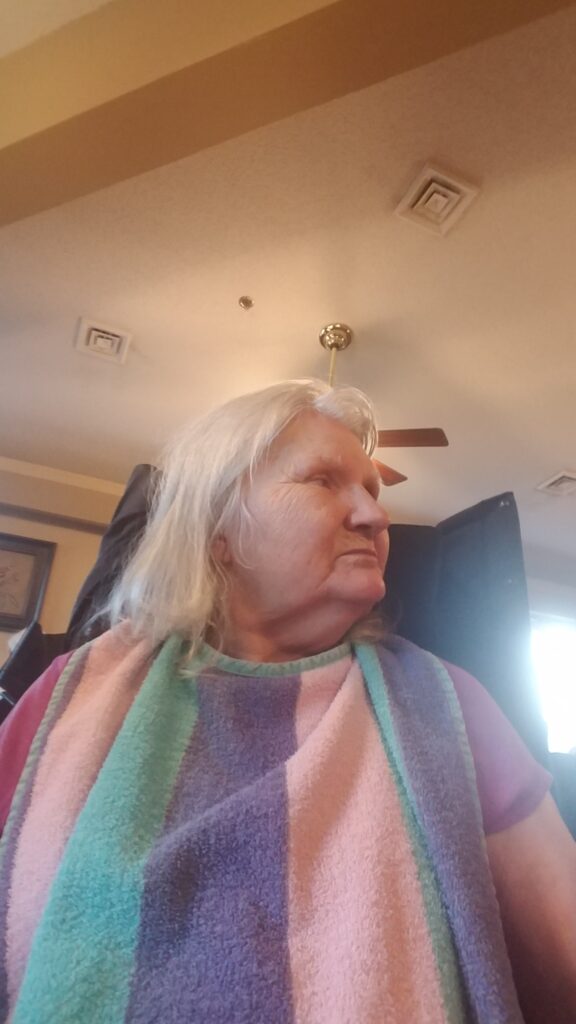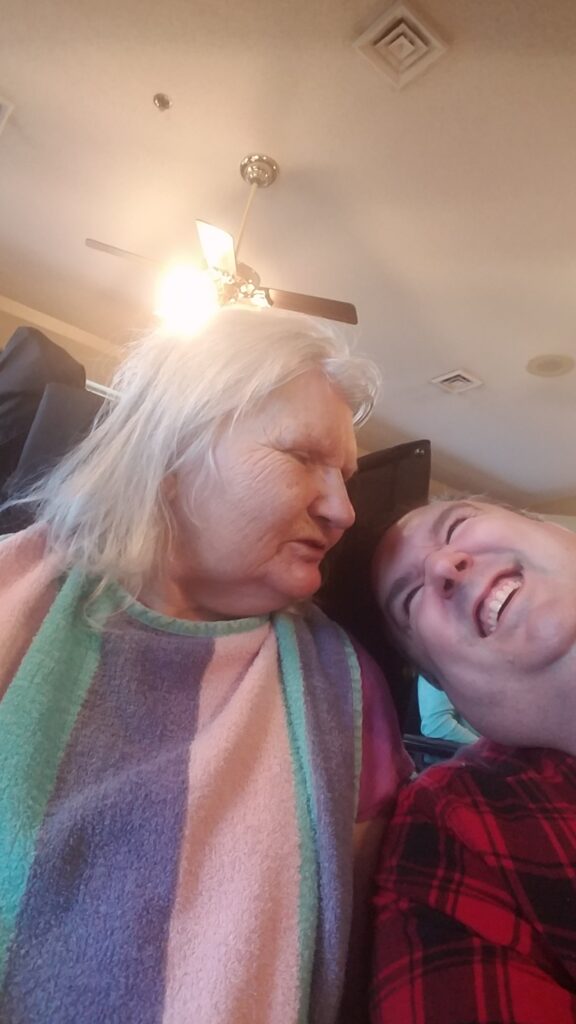Posted 10-24-19
One of the biggest challenges/obstacles to keeping a stream of visitors to a nursing home, or a caregiver’s home for that matter, is the rationale “How much does he/she really know, anyway?”. Is it pointless to visit someone who doesn’t know your name? Why subject yourself to that? I have some comments in that arena and I hope you still visit the column when I finish. 🙂
Here we go:
- First, who cares whether they know your name? You know his or her name. You spent X number of years benefiting from the relationship. Should it stop just because of this stinkin’ disease? Sorry that came out a tad coarse.
- We don’t definitively know how aware they are. We just don’t. You can do a brain scan and see which parts of the brain light up with certain stimuli, but who knows how fleeting these results are? Anyone who has spent a week around a person with the disease knows of the roller coaster. Were they at the peak when they were scanned or the valley? The environment of the scan itself is intimidating for a clear-thinking person…imagine if you are in a scan with dementia.
- It helps for patients to have visitors. It hurts for them to be socially isolated, just like it hurts anyone to be socially isolated. Are we shooting for helping or hurting here?
- Visiting a person in need builds your character and your emotional endurance. It is truly a win-win.
- Moments of clarity are very common in all stages, even end stage dementia. It is a tragic shame to have them have a moment like this and have nobody to tell.
- Why get PTSD and depression by visiting if it doesn’t help the loved one anyway? Number one…it does help them. It just does. Secondly, you can mitigate the PTSD. Call the nursing staff and ask when a good time to visit is, then call before you leave. There are no guarantees, but even when mom was at her worst a year ago, every day had relaxed and good visiting times. Last, I say from experience that this illness like most is going to cause depression if you go and if you do not. I didn’t visit my grandma, one of my previously favorite people in the world, but a handful of times after she had her stroke on Christmas Day 1980-somethin’. I was a kid…I get it…but to this day I wish I would have sucked it up and hugged her and told her…even her blank stare…how much I loved her. If you come up to a flaming car accident, would you say “No, I think saving them is too traumatic”? No, you wouldn’t. You are stronger than you think.
- Lastly, an unsatisfying What if??? What if he or she lost her speech and memories but is completely “still there”? Maybe just in a deep fog? I realize this is horrifying, but what if? The previous statements about moments of clarity, a subject I have studied quite a bit, really makes me wonder.
Last thought after my guilt trip list above: I am truly sorry. I realize it is hard and I care for you too. I don’t push family members hard in this area because I understand. I guess I just want us all to consider the situation, remember the great times from the past, and take a chance for their sake. The disease sucks and is super hard to deal with, but they are worth it.
Update: Mom had yet another good day. She told me she loved me too when I kissed her forehead and told her I love her on the way out. That always makes me happy. Her bed sores are better. We have a care meeting next week that will shed some light, but, all things considered, I am happy and she is happy where we are compared to possible status alternatives.
#EndALZ
Last note: I am sorry if I was hard on you. We have a tough situation here. I get it. 🙁 Keep fighting. Keep advocating. Keep praying. Keep learning and teaching.
Here are some more resources to consider:


We do have a lot of fun
Note: If a word or phrase is bold, it likely had a link to further research.
